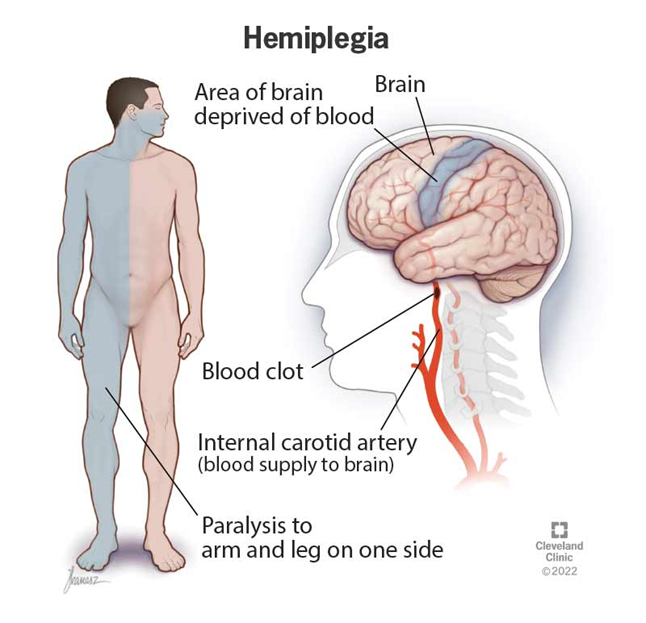A nurse is caring for a client who has right-sided hemiplegia following a recent stroke. Which of the following questions should the nurse ask to determine the client's ability to cope?
"Why do you think this has happened?"
"Are you okay with not being able to do some things you used to do?"
"Is anyone available to assist you with your hygiene?"
"How has this impacted your life?"
The Correct Answer is D
Choice A reason:
Asking "Why do you think this has happened?" may not be the most supportive approach. This question can lead to feelings of guilt or frustration, as the client might not have an answer and could feel blamed for their condition. It is more beneficial to focus on the client's current feelings and coping mechanisms.
Choice B reason:
Asking "Are you okay with not being able to do some things you used to do?" can be perceived as insensitive. It highlights the client's limitations rather than focusing on their strengths and coping strategies. This question might make the client feel more helpless and discouraged.
Choice C reason:
Asking "Is anyone available to assist you with your hygiene?" is important for assessing the client's support system and daily needs, but it does not directly address their emotional coping. While practical support is crucial, understanding the client's emotional and psychological state is equally important.
Choice D reason:
Asking "How has this impacted your life?" is an open-ended question that allows the client to express their feelings and experiences. It helps the nurse understand the client's perspective and coping mechanisms. This question encourages the client to share their emotional journey and can provide valuable insights into their mental and emotional well-being.

Nursing Test Bank
Naxlex Comprehensive Predictor Exams
Related Questions
Correct Answer is A
Explanation
Choice A reason:
It is essential to respect the client's autonomy and right to make decisions about their own health care. Informing the client of their legal right to refuse treatment empowers them to make an informed choice and ensures that their rights are upheld. The nurse should also explore the client's concerns and provide support and information to help alleviate any anxiety related to the procedure.
Choice B reason:
While it may be beneficial for the client's health to have the procedure, the nurse should not simply encourage the procedure without addressing the client's concerns. The nurse's role includes providing information and support to help the client make an informed decision, rather than persuading them to agree to the procedure.
Choice C reason:
Obtaining consent from a family member is not appropriate unless the client is legally unable to make their own medical decisions. The client's right to consent or refuse treatment should be respected, and the nurse should work directly with the client to address their concerns and provide necessary information.
Choice D reason:
Requesting another nurse to review the procedure with the client may be helpful if the client is seeking additional information or if there is a communication barrier. However, this should not replace the client's right to refuse treatment. The primary action should be to inform the client of their rights and address their concerns directly.
Correct Answer is D
Explanation
Choice A reason:
A client who is experiencing stimulant withdrawal may exhibit symptoms such as fatigue, depression, and increased appetite. While these symptoms can be distressing, they do not typically include seizures. Stimulant withdrawal does not usually necessitate seizure precautions because the risk of seizures is low.
Choice B reason:
A client who is experiencing opioid withdrawal may suffer from symptoms like anxiety, muscle aches, sweating, and nausea. Although opioid withdrawal can be very uncomfortable and distressing, it is not commonly associated with seizures. Therefore, seizure precautions are generally not required for opioid withdrawal.
Choice C reason:
A client who is experiencing cannabis withdrawal might experience irritability, sleep disturbances, and decreased appetite. Cannabis withdrawal is not typically associated with seizures, so seizure precautions are not necessary for these clients.
Choice D reason:
A client who is experiencing alcohol withdrawal is at a significant risk for seizures. Alcohol withdrawal can lead to severe complications such as delirium tremens, which includes symptoms like confusion, hallucinations, and seizures. Implementing seizure precautions for clients undergoing alcohol withdrawal is crucial to prevent injury and manage potential seizures effectively.
Whether you are a student looking to ace your exams or a practicing nurse seeking to enhance your expertise , our nursing education contents will empower you with the confidence and competence to make a difference in the lives of patients and become a respected leader in the healthcare field.
Visit Naxlex, invest in your future and unlock endless possibilities with our unparalleled nursing education contents today
Report Wrong Answer on the Current Question
Do you disagree with the answer? If yes, what is your expected answer? Explain.
Kindly be descriptive with the issue you are facing.
